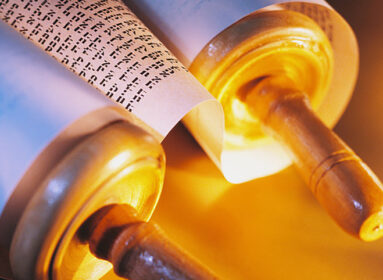
“If I forget thee O’ Jerusalem’
Tisha B’Av — the saddest day on the Jewish calendar — begins at sundown Monday, July 31.
By Shlomo Riskin
“How (eichah) am I able to bear your contentiousness, your burdens and your quarrels?!” [Deut. 1:12]
Just prior to the conclusion of the 1978 Camp David Accords, U.S. President Jimmy Carter submitted a letter for Prime Minister Menachem Begin that caused the Israeli leader to turn pale and promptly return it to the leader of the free world unsigned. “But I did not ask you to give up Jerusalem,” said the astonished American president. “I only asked that you put it on the negotiating table.”
Begin answered in his characteristically poetic style: “For two thousand years, we Jews have been reciting a verse from King David’s Psalms at every wedding ceremony: ‘If I forget thee O Jerusalem, may my right hand lose her cunning: Let my tongue cleave to the roof of my mouth, if I hold thee not above my highest joy.’”
“But does Judaism not state that you must give up a limb in order to save the entire organism?” remonstrated Carter. “Yes,” countered Begin, “but not if the limb is one’s heart. No human being can live without a heart. Jerusalem is the heart of Israel and the heart of the Jewish people.”
At this time of year, as Tisha B’Av approaches, we are especially cognizant of the devastating impact of the destructions of our nation’s heart in 586 B.C.E. and 70 C.E. With this in mind, it is important to note that Tisha B’Av is always immediately preceded by this week’s Biblical portion, Devarim. What is the significance of this calendrical juxtaposition?
Firstly, there is the linguistic connection between Parshat Devarim and Tisha B’Av. In our Biblical portion, Moses expresses his exasperation with the Jewish people: “How (eichah) am I able to bear your contentiousness, your burdens and your quarrels?!” To underscore the appearance of the word “eichah”, this verse is publicly chanted with the same haunting cantillations as the Scroll of Lamentations (Megillat Eichah), which is read on the evening of Tisha b’Av.
Going one step deeper, this linguistic connection points to the sin that led to Jerusalem’s first and second destruction and subsequent long exile: internal strife among the Jewish People. Our sages defined this contentiousness and quarrelsomeness as “sinat chinam,” causeless hatred. And since “every generation that does not build [the Temple] is as if they destroyed it” [Jerusalem Talmud, Yoma 1:1], it is painfully evident that we have much room for improvement.
Despite this daunting challenge, it gives us hope to know that Jerusalem, whose destruction we currently mourn and feel, is also the city from which the redemption of humanity will one day come. Jerusalem, once the paradigmatic symbol of destruction and loss, will become a symbol of reunification and restoration.
Isaiah, in presenting his vision of redemption, calls out in the Haftarah of the Sabbath immediately following Tisha b’Av: “Comfort you, comfort you (“Nachamu nachamu”), My people, speak about Heart-Jerusalem [“Lev-Yerushalayim”], and call out unto her; her period (of exile] has been completed, her iniquity has been forgiven” [40:1–2].
Note that the prophet refers to the city as Heart-Jerusalem, a compound noun (“speak about Heart-Jerusalem”); it is “heart” that defines Jerusalem. This is what Rabbi Avraham Yitzchak HaKohen Kook likely referred to when he said of the Western Wall, “There are some hearts that are of stone; and there are some stones that are truly hearts.” Such are the heart-stones of the Western Wall; such is Jerusalem – heart-stone.
According to all of our prophets, this message will be conveyed at the end of the days from the Holy Temple in Jerusalem, to which all the nations will flock. At that time they will beat their swords into ploughshares, forsake entirely the cultivation of warfare [Is. 2, Mic. 4], and “the nations will change to speak a pure language; they will all call upon the name of God and serve Him with a united resolve” [Zeph. 3:9]. Jerusalem will become the vehicle for Israel’s expression of the purpose for its being, the effectuation of a redeemed world of peace.
For these reasons and more, Prime Minister Begin was absolutely correct to insist that Jerusalem cannot be placed on the negotiating table! Jerusalem will one day reunite all of humanity within her bosom, for she is the heart of humanity. The love that will emanate from Jerusalem will be a love without cause [“ahavat chinam”], repairing the hatred without cause that caused Jerusalem’s demise in the first place.
We have the obligation and the ability to transform this vision to reality by taking it upon ourselves on a daily basis to do our part to increase love without cause. B’ezrat Hashem, in this merit, we will witness the full rebuilding of Jerusalem speedily and in our days.
Rabbi Shlomo Riskin is chancellor of Ohr Torah Stone and chief rabbi of Efrat, Israel.
PULL QUOTE: At this time of year, as Tisha B’Av approaches, we are especially cognizant of the devastating impact of the destructions of our nation’s heart.








 Southern New England Jewish Ledger
Southern New England Jewish Ledger









